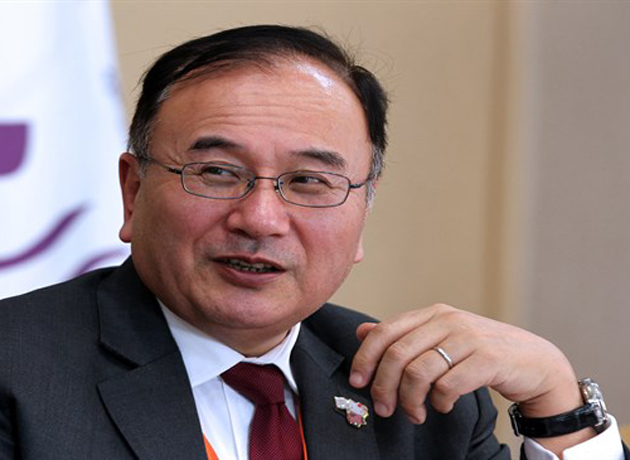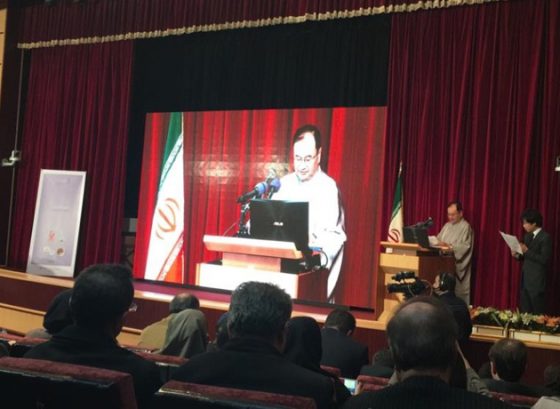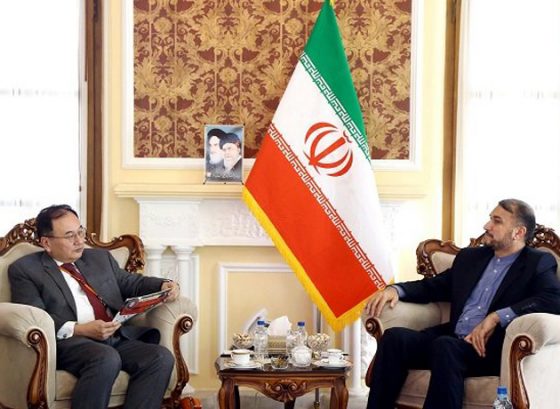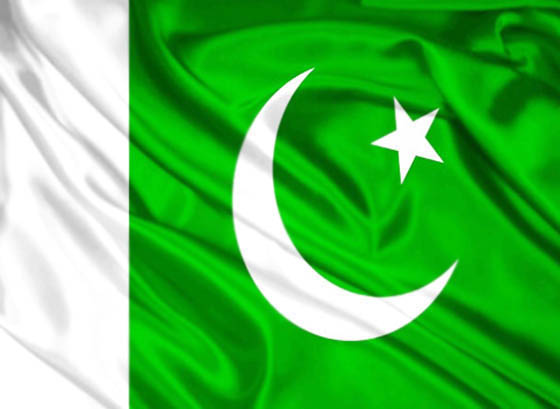Envoy: Japan’s will to continue oil imports from Iran not to change

Japan’s will to continue oil imports from Iran will not change, said Japanese ambassador to Iran, AVA Diplomatic reports.
Speaking to Iran Daily on the sidelines of a visit to Iran Cultural and Press Institute, Mitsuo Saito added as a country with enormous oil and gas resources in the Middle East and the Persian Gulf, Iran is a valuable source of energy to Japan which requires the country to meet its needs.
Tokyo attaches great importance to its relations with Tehran, and, thus, it held serious talks with the US to continue its oil imports from the Middle Eastern country, he noted.
Excerpts of the interview follow:
IRAN DAILY: Iran and Japan have recently celebrated the 90th anniversary of diplomatic relations. How do you evaluate mutual ties?
MITSUO SAITO: Maintaining political relations between Japan and Iran is very important to us. As a country with enormous oil and gas resources in the Middle East and the Persian Gulf, Iran is a valuable source of energy to Japan which requires the country to meet its needs.
Being located in proximity to the Strait of Hormuz, through which 90 percent of the Middle East’s oil is exported, further increases Iran’s importance to Japan. In addition, we maintain that efforts to establish peace and ensure stability in the Middle East region would not deliver desired results in the absence of Iran as a powerful regional state.
It appears that the two countries’ political relations have failed to improve in proportion to their economic ties as confirmed by the insufficient number of official exchanges between the two countries. What is the reason?
The number of official exchanges between the two countries has not been low. However, it is true that the number of exchanges between Iran and European states has been quite high. Among the important reasons for this could be the shorter geographical distance between Iran and European states, compared to that between Tehran and Tokyo. For instance, while it is possible for a European official to pay a one-day visit to Iran, the flight from Japan to Iran takes about 10 hours.
Although earlier, certain issues such as differences over Iran’s nuclear program and imposition of international sanctions on Tehran were effective in the number of official exchanges between Japan and Iran being low, at present, it is only due to the geographical distance between the two countries. Nevertheless, transactions between the two sides are still taking place.
Japan needs to meet its energy needs through imports from the Persian Gulf. Peace and stability in this region is crucial to guarantee sustainable energy production in and exports from the region. Thus, Japan is fully aware of Iran’s important role as a major regional country and naturally attaches great importance to maintaining its political relations with Tehran. On January 17, Japan and Iran marked the 90th anniversary of their diplomatic relations in a ceremony in Tokyo. Another ceremony on the same occasion was held in the Japanese Embassy in Iran on January 23.
The peoples of the two countries form the foundation of their bilateral political relations. The holding of the ceremonies to commemorate the 90th anniversary of diplomatic relations between Japan and Iran served as symbols indicating that the two countries’ people have done their best to maintain their relations throughout all these years. I intend to help develop relations between Japan and Iran at people-to-people level by presenting the Japanese culture, particularly the country’s popular culture, to Iranians.
Despite strong will on the part of the two countries’ top officials to bolster mutual political relations, Japanese Prime Minister Shinzo Abe and Iranian President Hassan Rouhani have not yet paid any visit to the respective countries? Why?
As Japan’s ambassador to Iran I deeply wish that our prime minister would travel to Iran and, likewise, to see the respected Iranian president in Japan. My role is to prepare the ground for such high-ranking official visits and I plan to do so.
What is Japan’s attitude and stance towards US May 8 withdrawal from the Joint Comprehensive Plan of Action (JCPOA), signed between Iran and P5+1 in July 2015?
Japan is neither a signatory to the JCPOA, nor part of the negotiations pertaining to saving the Iran nuclear deal. However, despite Washington’s pullout from the deal, Tokyo has constantly voiced support for the preservation of the international agreement. Tokyo attaches great importance to its relations with Tehran and, thus, it held serious talks with the US to continue its oil imports from the Middle Eastern country. As a result of these negotiations, this time, Japan is also among the countries obtaining exemptions from US sanctions on Iran.
Security-wise, the US is Japan’s main ally. In addition, Japan’s economic and financial systems are closely connected to those of the US. These considerations are important factors in Japan’s foreign policy. Japan adopts its policies based on its national interests. It does not, however, shape its foreign policy based on US will.
How do you see the future of Japan’s oil purchases from Iran? Is it possible for Tokyo to receive permanent exemption from US sanctions on Iran?
Due to being a diplomatic issue between Japan and the US, I cannot disclose details of talks between Tokyo and Washington on this subject. What is clear, however, is that Japan’s will to continue oil imports from Iran will not change.
After the JCPOA went into forces in January 2016 and the removal of international sanctions, the Japanese firms have seemingly failed to catch up with their Asian and European rivals in the race to expand presence in the Iranian market. What is the reason?
Japanese firms are still very much interested in cooperation with Iran. Despite the reimposition of Washington’s unilateral sanctions on Tehran [in two phases both already in place], most of the Japanese companies, already active in Iran, have not yet exited the country and still attach considerable importance to their trade with it.
Concurrent with the increased use of renewable energy resources in Japan and the strong inclination in the country toward reducing energy consumption, demand for consuming oil is declining in Japan. Thus, oil imports in Japan depends on the country’s private companies, which attach great importance to market principles. In case Iran seeks to export more oil to Japan, it is required to put in more tempting offers.
To expand economic relations between the two countries, I intend to work out appropriate solutions through holding talks with my Iranian counterparts.
How do you see the future of the JCPOA and cooperation between Iran and Japan?
Iran has fulfilled its commitments within the framework of the JCPOA. Reciprocally, Japanese companies have stayed in Iran and are working in the country under the present difficult circumstances. Japanese firms, however, have close relations with the US which makes the condition even more difficult for them. Thus, in case Tehran decides to pull out of the JCPOA, they would no longer see a reason to stay in Iran. I know that Iranians do not consider Japan’s supports for their country as sufficient. However, I hope that based on our historical relations and capabilities, we would be able to improve our relations in all fields and safeguard each other’s interests.




